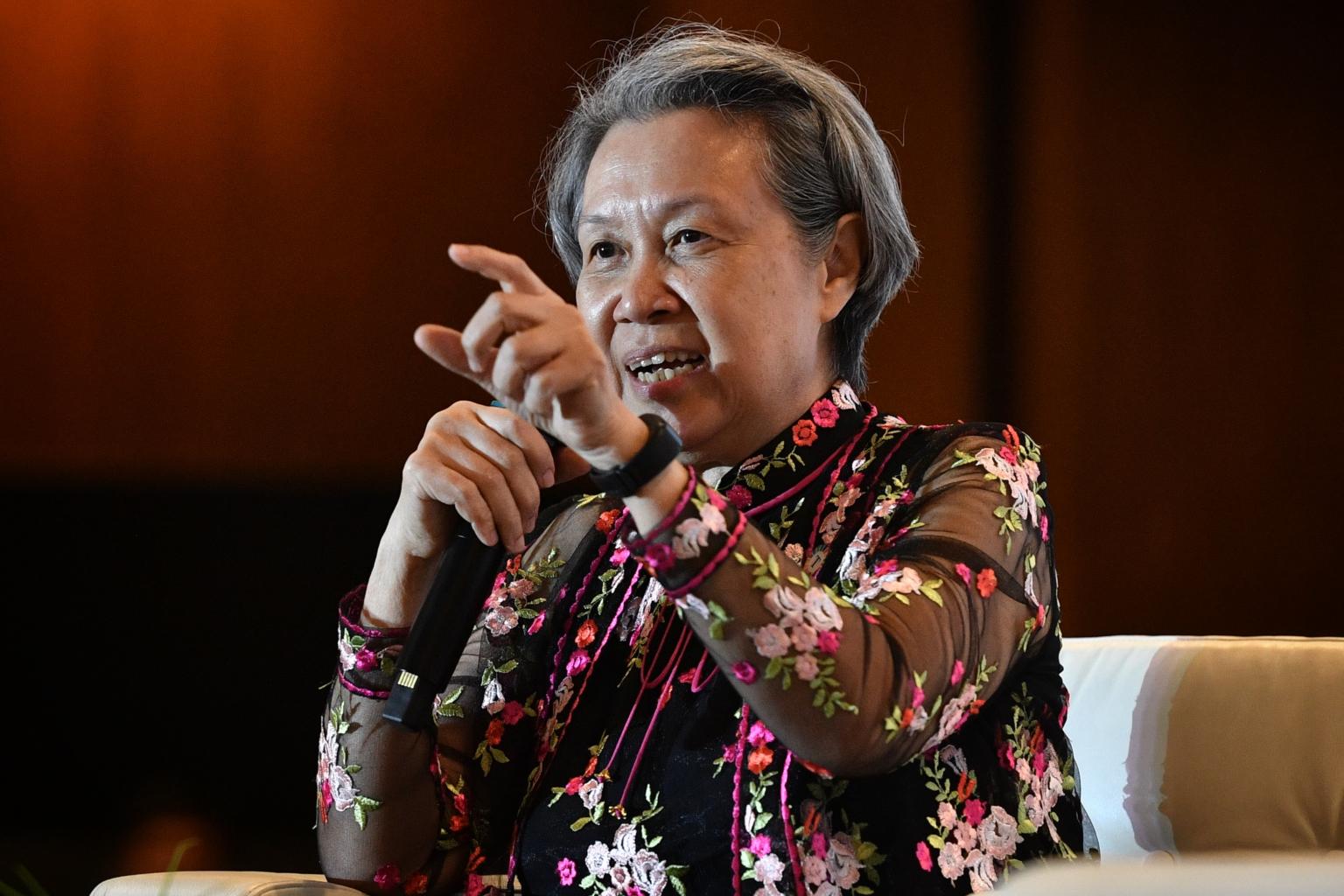Businesses to reduce costs and risks by taking steps towards sustainability: Ho Ching
Sign up now: Get ST's newsletters delivered to your inbox

Temasek Holdings chief executive and executive director Ho Ching speaking at the 11th Global Compact Network Singapore summit.
ST PHOTO: CHONG JUN LIANG
SINGAPORE - Businesses can save costs and reduce risks when they are sustainable, said Temasek Holdings chief executive and executive director Ho Ching.
She added that the Singapore state-owned investment company will start reporting its energy and water consumption this financial year and encouraged other businesses to do the same.
Ms Ho was speaking at the 11th Global Compact Network Singapore summit held on Tuesday (Nov 12) at Suntec City Convention and Exhibition Centre. The network is the local chapter of the United Nations Global Compact and aims to support businesses in aligning their strategies and operations with sustainability.
The summit brought together more than 400 business leaders, government officials, investors and organisations to discuss global trends in sustainability and business.
Ms Ho said in her address: "Businesses can save money ... when they reduce waste. Businesses can reduce risks when they eliminate pollution that harms people and planet.
"For those of us who have not started, I propose that we take a simple first step, to report our electricity and transport usage by next financial year...whether you are big or small. It's a proxy for our indirect emissions. Producers could also track and report on their direct emissions from burning fossil fuels or green forests."
Ms Ho added that once companies track and measure, they can start to look at ways of reducing emissions and waste.
Temasek itself consumes water, paper, electricity and air miles and the company will start reporting these for this financial year.
Ms Ho noted that the company has also been investing in sustainable solutions such as plant-based proteins and better fertilisers. It has also decided to go carbon-neutral by next year and halve the greenhouse gas emissions of its portfolio by 2030.
"We encourage others to join us to report electricity and water consumption, as well as any direct emissions," she said.
This first step of reporting can help companies improve efficiencies, reduce cost, mitigate risks or find new opportunities.
Ms Ho added that businesses can also set the tone for their people, from boosting product and resource efficiency to workforce training.
"Businesses have the resources and organisational capacity to make a real impact in a systematic and tangible way... Doing right and doing good, to do well, will help them earn trust and strengthen their social licence to operate," she said.
Environment and Water Resources Minister Masagos Zulkifli told the summit that businesses can help to mitigate climate change by adopting energy-efficient and low-carbon technologies.
"(They) can support our transition to a circular economy by engaging in sustainable production and consumption, and reusing and recycling our resources for as long as possible," he added.
Businesses can also partner non-governmental organisations to achieve their sustainable goals.
He said: "To continue thriving in a carbon- and resource-constrained economy, we all have to build up climate, resource and economic resiliencies. Then we can be ready to tap on new opportunities in a circular and green economy."


